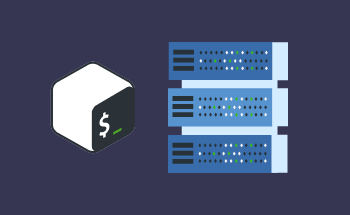What is the difference between a dedicated server and a virtual server
07:07, 09.09.2021
Suppose you’ve made up your mind about creating a website, a mobile application, or any other project that should be accessible through the World Wide Web, to provide for this accessibility. In that case, you first and foremost need to find a decent server solution. While here on our website you can find a variety of hosting offers to suit any budget and any project, the problem of picking the right option for your particular project can still be daunting. In this regard, you can’t proceed without informing yourself about some of the basic concepts in the realm of hosting, where the distinction between a dedicated and a virtual server is probably the most basic and important thing to start with, therefore this is exactly what we want to dedicate our article to.
Understanding VPS and Dedicated Hosting
VPS and dedicated servers are two different types of hosting, which can be considered the hosting options currently used by the majority of websites. Without further ado, let us see what sets them apart and what they have in common.
The Essence of VPS
Technically, VPS can be considered as a derivative of a dedicated server. However, as this solution is suitable for statistically more usage scenarios, let’s start with it.
VPS stands for Virtual Private Server and is the hosting option that is based on sharing the capacities of a physical server by means of virtualization technology.
Unlike shared servers, where no sophisticated methods of sharing resources are used, VPS servers are much more advanced in this regard. Virtualization creates multiple virtual instances that function independently from each other, that are even unaware of being virtualized. This is reached through the use of a program referred to as a hypervisor that organizes this dedication of resources. Different virtualization solutions suggest the installation of hypervisors either on top of an operating system like regular software, or directly on top of the hardware.
With this, these virtual machines are pretty independent, having a dedicated set of resources, and various levels of autonomy depending on what kind of virtualization solutions are used.
Hardware-level virtualization gives the highest level of autonomy with root access, so you can install basically any applications, apply any settings and deploy the most different types of projects.
VSP servers are a great solution for various projects that don’t need too much computing power, but still need a solution that will give better uptime, reliability, security, flexibility, and customizability.
The Essence of Dedicated Servers
Dedicated in contrast to VPS servers, are just whole physical servers that are rented our to the customers as they are, so there is no need to introduce how they are possible from the technological point of view. Dedicated servers essentially grant their user with the whole potential of its hardware, and the performance can’t ever be affected by other users.
Maximum resources, stability, and security — that’s what you’ll get by going for a dedicated server.
Besides that, you can opt for the exact optimal piece of hardware to fit some specific types of projects, let alone the fact that you can apply any configuration and install anything to run on it, as long as the available resources are enough.
The only pitfall of a dedicated server is the price, which is significantly higher than one of any VPS server, and this is exactly the reason while there are so many other solutions – to provide users with a more affordable hosting solution.
Key Terminology Explained
Managed versus Unmanaged: VPS and Dedicated Servers
There are some things you should know before selecting and purchasing your hosting plan. First, you might have come across the opposition managed and unmanaged VPS or dedicated servers.
The thing is that there are much more technical and often routine tasks that should be done for server management. These include server setup, configuration, maintenance, monitoring, security updates, backups, email server configuration, and many others, and it requires time and some technical know-how to take care of them.
If you don't have enough resources at your disposal and would like someone else and someone professional to take care of these routines, then Managed Hosting is what you’re looking for.
Managed hosting is an additional hosting service, where you pay your hoster to do these job for you, with a high level of expertise as well as monitoring your server and fixing issues that may arise.
Unmanaged hosting is just a service without the “management” features. Although you have to take care about all these management aspects on your own, you get more control over your server.
To choose the right option for you, just take your possibilities, resources and priorities into consideration.
VPS Hosting versus Cloud VPS Hosting
Cloud hosting is a different hosting type from VPS hosting or dedicated hosting, which is based on a different technical approach. Cloud hosting too is based on virtualization, however, we don’t deal with a single server separated into virtualized units. Instead, the cloud is a kind of network of servers, whose resources are united into a virtualized pool, from which the users can order a desired number of capacities.
Cloud hosting is similar to VPS hosting in a way that it provides you with stable, reliable, and secure hosting. What sets it apart is that there are no plans with fixed numbers of resources. Instead, you can have an exact number of resources you need and order even with hourly billing. All this provides extreme flexibility and immediate deployment. However, you still don’t get as much overall performance and stability as with VPS and there is much less configurability.
For these reasons, cloud is the preferable solution in case you are going to deploy a project that needs maximum scalability and flexibility of resources.
Exploring the Advantages and Disadvantages of VPS versus Dedicated Hosting
A VPS server can provide you with the following advantages:
- Reliability and smooth performance: A VPS server will work almost like a dedicated server in terms of reliability and performance, providing you with dedicated resources and an isolated environment.
- Customization: The environment of a VPS is fully isolated and independent from other instances on the same server – consider root access – so you’ll be able to organize your web environment without any limitations.
- Security: A VPS is protected from any threats that can originate from neighboring users on the same server, while its customizability sets no limits to security measures you can deploy.
- Affordable price: A VPS is a solution for small projects, being able to provide them with just a sufficient amount of resources they need.
Dedicated server can in turn offer:
- Maximum resources for needs of large-scale projects.
- Maximum stability, reliability, and security: Given that a dedicated server is a separate server, it provides the smoothest performance possible with minimal chance of technical issues.
Choosing Between VPS and Dedicated Server
All in all, dedicated hosting and VPS hosting offer pretty similar features and the main difference is presented by the scale of resources offered. What decision to make depends thus on the scale of your projects and on the financial resources you have at your disposal. So to choose the right option, you’ve got to evaluate your needs and see which option can cover them.
Top VPS Hosting Providers
HostZealot can offer you numerous hosting plans, reliable and affordable, with numerous additional features, multiple locations, and professional 24/7/365 support. However, if you want to be more informed about the offers available on the market, let’s have a quick look at several other popular VPS and dedicated hosting providers.
- DigitalOcean: Praised for being simple and developer-friendly, DigitalOcean can offer you numerous scalable VPS plans with SSD storage and transparent pricing.
- Linode: Linode is another provider that is frequently chosen by developers, who appreciated its reliable VPS hosting solutions, robust infrastructure, and excellent customer support.
- Vultr: Vultr hosting provider can offer your VPS server with high performance on numerous locations globally.
- HostWinds: Hostwinds is a provider offering affordable VPS hosting plans with customizable configurations, SSD storage, and a variety of add-on services.
- DreamHost: On DreamHost, you can find numerous VPS hosting solutions, featuring solid performance, SSD storage, and a user-friendly control panel.
Top Dedicated Hosting Providers
- Liquid Web: Liquid web is a hosting provider that is particularly known for high-performance VPS servers, offering managed server options, highly professional support, as well as a great deal of customization options.
- OVH: Another dedicated server provider, OVH offers dedicated service in multiple locations with robust infrastructure.
- InMotion Hosting: InMotion Hosting provides reliable dedicated hosting services with SSD storage, enterprise-grade hardware, and 24/7 support.
- HostGator: HostGator offers powerful dedicated server hosting solutions with full root access, DDoS protection, and a user-friendly control panel.
- A2 Hosting: A2 Hosting provides customizable dedicated server hosting with turbocharged performance, free server rewind backups, and RAID-10 storage options.
Final Thoughts
If you’re looking for hosting, chances are you need either a VPS and or dedicated hosting. In this article we’ve had a look at what these hosting types are about. We hope that after reading this article you have a much clearer idea on how to choose a proper hosting solution and wish you good luck!


